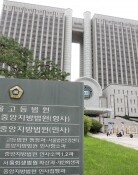Samsung, LG groups announce downsizing of MRO business
Samsung, LG groups announce downsizing of MRO business
Posted May. 26, 2011 00:55,
As the Korean government urges joint growth between conglomerates and smaller businesses, Samsung Group and LG Group will significantly reduce their maintenance, repair and operation (MRO) lines.
This follows criticism that conglomerates MRO renders it difficult for small and medium companies to do business.
Samsung said Wednesday, I Market Korea (IMK), which was established to supply consumable materials to Samsung affiliates in 2000, will operate to serve affiliates and primary suppliers only and will not seek new business.
The group has thus decided that IMK will end its existing supply contracts with the government or state-run organizations as soon as their contracts expire.
Samsung also announced a strategy for co-growth in the MRO field. The conglomerate will name two additional board directors at IMK by receiving recommendations from the small and medium business community and academia, establish an advisory body for co-growth under the IMK board of directors, and help smaller companies develop overseas sales networks.
LG Group, which operates the country`s top MRO provider Serve One, also said Wednesday, We will not advance into the boundary of small and medium businesses at the level of secondary or lower suppliers.
Serve One, which has been discussing MRO issues with tools wholesalers, accepted four demands, including negotiations for assuring proper levels of profit to seek co-growth.
With companies stressing efficiency and cost-cutting in the 2000s, one of many things that have spread exponentially is MRO. For instance, when Company A needed a ballpoint pen in the past, it would directly pay 100 won per pen from other ballpoint pen maker B. As A sought to buy ballpoint pens in a more convenient fashion with smaller purchasing staff and costs, it chose to outsource purchasing.
So instead of buying pens, printing paper and lamps comprehensively through an MRO provider, it chose to get supply of a single pen for 90 won. This entailed business relations beneficial to both Company A and the MRO provider, but Company B suffered deteriorating profit because it had to sell the same pen for 80 won due to net margins for the MRO provider.
As Samsung and LG declared reduction of their MRO businesses in a surprise move, POSCO and Kolon are also agonizing over whether to follow suit. POSCO expressed regret, saying, We established an MRO to simplify purchasing operations, and our MRO is already focusing its business on affiliates.
Nevertheless, the steel giant apparently has no choice but to be wary of moves by other companies.
Kolon said, Unlike other conglomerates that established MROs themselves, we took over an existing company, and hence it has large volume of sales from external companies, but added, Once the business adjustment meeting hosted by the Small and Medium Business Administration comes up with an agreement, we will take the necessary measures."
SK Group has been running an MRO in such a highly passive fashion that it incurred operating losses in the sector last year. Our MRO is not at a level where we can afford to reduce its scale, because it is operated for the purpose of allowing affiliates to secure a stable volume of supplies, SK said.
Small and medium businesses say that as MROs of conglomerates have advanced into the public sector and regular commercial markets, more than 50,000 smaller-size wholesalers of tools and stationery products have lost their market share over the past several years.
In April last year, smaller wholesalers and distributors of tools, stationary products submitted applications for business adjustments against Samsung, LG, Kolon and POSCO. But a combined eight attempts to seek self-regulated coordination until recently ended up collapsing, angering the small and medium businesses.
foryou@donga.com sun10@donga.com







